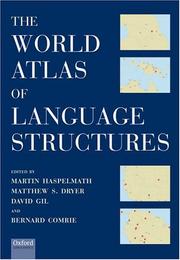The Most Forgotten but Most Effective Strategy
Find articles about the language you're hoping to study and watch the citations in those articles. Often you'll find citations to a relevant corpus or dataset.
Finding Corpora
See the Corpora page.
Finding Linguistic Data
1) Start with Glottolog and Ethnologue
-
GlottologSearch for your language and then scroll down to the grid of citations. Limit to "Grammars."
-
Ethnologue
Call Number: REF P371 .E83In the online version, search for your language. Then click on "Language Resources" and look for the heading "Language Descriptions." You will see citations here (use Catalyst or WorldCat/Interlibrary Loan to see the works). For online resources, click the link and then click the "Identifier (URI)" link. Sometimes this will result in another citation -- sometimes it'll result in an actual full-text resource.
2) Search Catalyst
In library searches, the word "Grammar" applies to two things: a core linguistics work that describes and provides examples of a particular language, and a school child's guide to learning a native language. There's no perfect way to distinguish between those two in your searches, but here's how to find what you really need:
- Do an Advanced Search and put your language's name in one line as a SUBJECT.
- Then put the word "Grammar" into the next line as a SUBJECT.

- Then scan the results looking for works that were ideally published by a major scholarly publisher, such as a University Press.
This technique also works in WorldCat.
Limiting to scholarly publishers
If you're finding lots of grammars that aren't scholarly (maybe aimed at second language learners or grade school students), try limiting your searches to just the core, known scholarly publishers in linguistics. Here's an example of that kind of search for you to use:
-
Finding Scholarly Grammars in Catalyst: Try changing the Language listed in this search to find linguistic descriptions of your chosen languageFinding good reference grammars and other sources that describe the linguistic structures of a particular language can be challenging. Carleton or St. Olaf not have what you need? Check WorldCat for interlibrary loan options.
3) On the open web
Many linguists publish their findings on the web, either in collections like OLAC, through organizations like SIL, or on their own researcher websites. Here are some of the best ways to find that scholarship:
Language Information
-
Ethnologue
Call Number: REF P371 .E83Availability and more information from Catalyst...
Key source for finding how languages are related to other languages. Catalogs all known living languages. Online version includes links to language resources including primary data.
-
GlottologA comprehensive catalogue of the world's languages, language families and dialects, including references to source material (grammars and more) for linguists.
-
 World Atlas of Language Structures
Call Number: Ref P143 .W67 2005Availability and more information from Catalyst...
World Atlas of Language Structures
Call Number: Ref P143 .W67 2005Availability and more information from Catalyst...
The Online version is easily browsable and searchable, and sources it's information thoroughly, leading you to important descriptions of specific languages and structures.
-
Finding Scholarly Grammars in Catalyst: Try changing the Language listed in this search to find linguistic descriptions of your chosen languageFinding good reference grammars and other sources that describe the linguistic structures of a particular language can be challenging. Carleton or St. Olaf not have what you need? Check WorldCat for interlibrary loan options.


